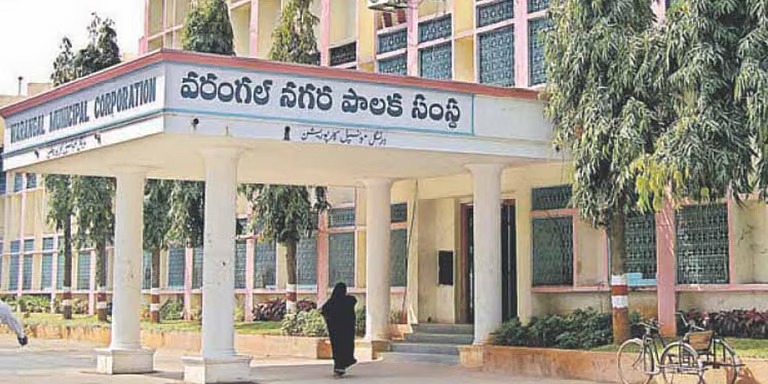
After the devastation caused by Cyclone Montha, that inundated over 120 colonies in Hanamkonda and Warangal, the Greater Warangal Municipal Corporation (GWMC) has launched an ambitious plan to develop sponge parks — a nature-based solution to curb annual flooding and improve groundwater levels in the twin districts.
A sponge park is a specially engineered green space designed to act like a natural sponge. They will be used to prevent inundation in residential and commercial zones while recharging groundwater.
The project draws inspiration from Chennai’s successful model that transformed vacant and low-lying lands into green spaces capable of absorbing massive volumes of rainwater. Officials view it as crucial for the tri-cities of Warangal, Hanamkonda and Kazipet, where widespread concretisation has worsened flooding each monsoon. The parks will function both as flood-control systems and as new green lungs for the city.
The GWMC has adopted a multi-pronged strategy to protect the city, which includes widening canals, constructing retaining walls and integrating sponge parks into its long-term urban-resilience plan.
Commissioner Chahat Bajpai said engineering and horticulture teams are surveying 135 low-lying areas to identify suitable locations for the first phase. “We plan to start with one or two pilot parks before scaling up across the city,” she said, adding that the proposal will soon be submitted to the government for approval. Senior officials are expected to meet in Hyderabad to finalise the next steps.
Besides controlling floods, the parks will enhance aesthetics and help sustain greenery year-round by retaining moisture. Drainage channels will be redirected to feed the parks’ ponds and percolation pits, ensuring water storage instead of run-off.
The concept reached Warangal after former GWMC Commissioner Ashwini Tanaji Wakhade attended a two-day workshop in Chennai titled ‘Sponge Park Framework for Resident Open Spaces’ under the Sustainable Urban Development Smart City-2 project. The training offered technical guidance on planning, design and maintenance of sponge parks.
Chennai adopted the idea after the 2015 floods that claimed hundreds of lives. The Greater Chennai Corporation built 57 sponge parks at a cost of ₹7.67 crore, featuring rain-harvesting pits ranging from 340 to 7,000 square metres with deeper centres and sloping edges to retain and channel rainwater into the soil.
Globally, sponge-city projects have been implemented in Auckland, Nairobi, New York, Singapore, Shanghai and London. Encouraged by their success and the Chennai framework, Warangal aims to replicate the model to address its long-standing flood problems.
Disclaimer : This story is auto aggregated by a computer programme and has not been created or edited by DOWNTHENEWS. Publisher: deccanchronicle.com







